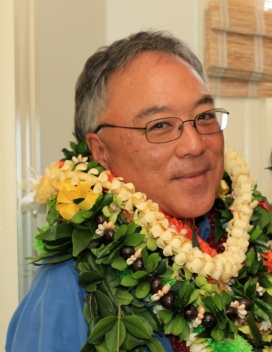Race, Rights, and National Security: Law and the Japanese American Incarceration, Third Edition
Race, Rights, and National Security: Law and the Japanese American Incarceration, Third Edition
Race, Rights and National Security: Law and the Japanese American Incarceration is both a comprehensive resource and course book that uses the lens of the WWII imprisonment of Japanese Americans to explore the danger posed when the country sacrifices the rule of law in the name of national security. Following an historical overview of the Asian American legal experience as unwanted minorities, the book examines the infamous Supreme Court cases that upheld the orders leading to the mass incarceration and their later reopening in coram nobis proceedings that proved the government lied to the Court. With that foundation, the book explores the continued frightening relevance of those cases, including how racial and religious minorities continue to be harmed in the name of national security and the threat to democracy when courts fail to act as a check on their co-equal branches of government.
New to the Third Edition:
- An entirely new section, which views the recent targeting of religious minorities through the lens of the Japanese American incarceration, including the Muslim travel ban case of Trump v. Hawaii, which purported to overrule Korematsu v. United States.
- A continuous inquiry throughout the book regarding the role of courts in reviewing government actions taken in the name of national security, the tensions inherent in identifying that role, the potential cost of excessive court deference, and a proposed method for judicial review of national security-based government actions.
- Updated text, including revisions that tailor the book’s content to its revised focus on national security, enhanced discussions of early anti-Asian exclusionary laws and Ex Parte Endo; recent events raising parallels to the Japanese American incarceration, such as the incarceration of immigrants and family separation at the southern border and the continued negative stereotyping of Asian Americans.
- Augmented discussion of ethical rules in relation to misconduct by government lawyers during World War II.
Professors and students will benefit from:
- A succinct overview of Asian American legal history
- An overarching narrative that takes the reader from early anti-Asian discriminatory laws to the wartime Japanese American incarceration to today, interweaving carefully contextualized case law with questions, original government and litigation documents, oral histories, commentary, and photographs to stimulate class discussion.
- A focus on both the legal and non-legal issues surrounding the Japanese American incarceration, so that readers consider how the legal system, the law, and players within the legal system act within a broader milieu of politics, economics, and culture.
- The ability to understand law and the legal system in a way that is both interdisciplinary and that crosses different areas of law. The book treats subjects such as race relations and critical race theory; constitutional, criminal, and national security law; criminal and civil procedure; professional ethics; evidence; legal history; and lawyering practice. A professor in the area of constitutional law, for example, might excerpt relevant portions of the book to supplement the standard, typically decontextualized case law treatment of the Korematsu and Hirabayashi cases. At the same time, this book explores these and other cases in their historical and political context and addresses the law’s real human impact.
- Finally, the story of the Japanese American incarceration provides a powerful starting place for students to discuss a range of present-day issues regarding stereotypes and profiling, government restraint on liberties, national protectionism, and civic responsibility. If teaching at its best is about engaging students’ hearts and minds, and provoking stimulating debate, these materials are designed to facilitate just that.
Product Information
Race, Rights, and National Security: Law and the Japanese American Incarceration, Third Edition
Paperback

